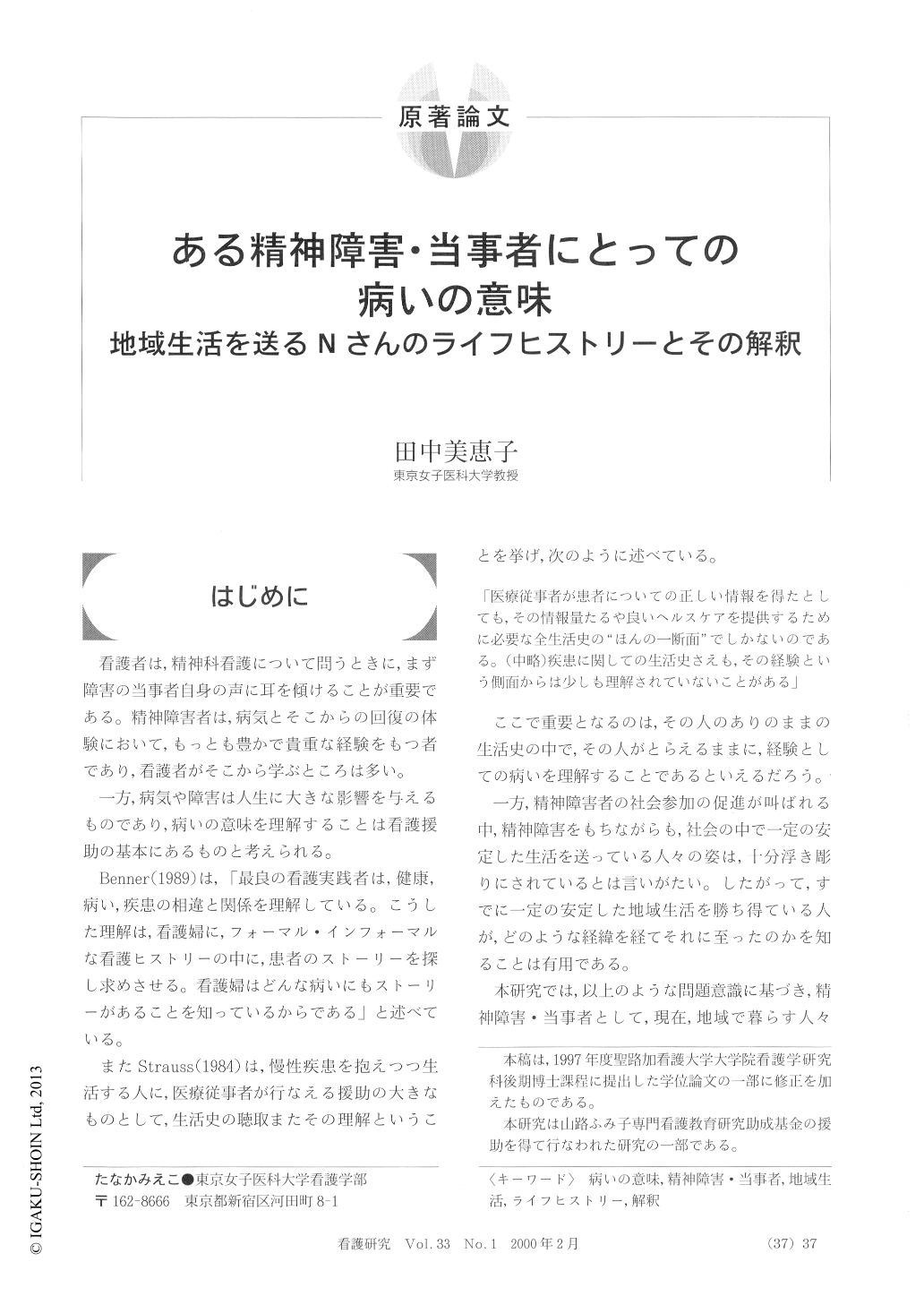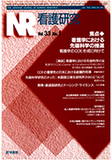Japanese
English
- 有料閲覧
- Abstract 文献概要
- 1ページ目 Look Inside
- サイト内被引用 Cited by
はじめに
看護者は,精神科看護について問うときに,まず障害の当事者自身の声に耳を傾けることが重要である。精神障害者は,病気とそこからの回復の体験において,もっとも豊かで貴重な経験をもつ者であり,看護者がそこから学ぶところは多い。
一方,病気や障害は人生に大きな影響を与えるものであり,病いの意味を理解することは看護援助の基本にあるものと考えられる。
The purpose of this study is to understand the meaning of illness through the life experiences of one person concerned with being mentally disabled in Japan.
The study takes the philosophical stance of M. Heidegger's ontology, in whose work the individual is regarded as “being-in-the world, self-interpreting, self-constitutive, and at the same time making sense of things and other individuals, while being linked with the temporality”.
The methodological stance taken in this study is hermeneutics based on M. Heidegger's ontology. The Life History approach was used for data collection.
The co-researcher of this study is Mr. N using mental health care services and living in a community setting in Japan. The data was obtained by interviewing the subject about his life experiences.
The data transcribed were reorganized according to life history using the Life History method. This life history was interpreted as “text” for the purpose of understanding the meaning of illness for the subject.
As a result of the interpretation, the central meanings of illness for Mr. N was determined as “seeking after truth based on the experience of SATORI (the religious awakening)”.
We also found that there were several meanings of illness which formed the central meaning of Mr. N's life experiences, as demonstrated in the following;
1. “Suffering experienced as a mental illness”
2. “Traumatic admission experience to a mental hospital as a crack of Ego and at the same time as an experience of being escorted to a hell”
3. “Experiencing difficulty derived from the stigma of mental disability”
4. “Experiencing difficulty for regaining one's footing and Efforts for the self-changing”
5. “Meeting fellows and the acceptance of living with illness which results in acceptance of the self as being mentally disabled”.
6. “Reconstituting one's own self as a person concerned with being mentally disabled and the narrative”.
The life history of Mr. N demonstrated one concrete example of life history as “a development of life” of a schizoprene.

Copyright © 2000, Igaku-Shoin Ltd. All rights reserved.


